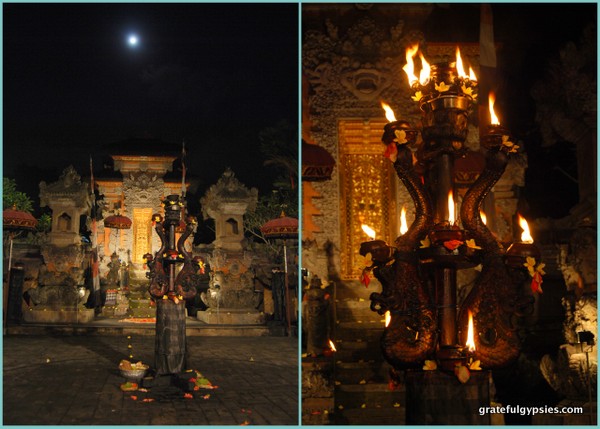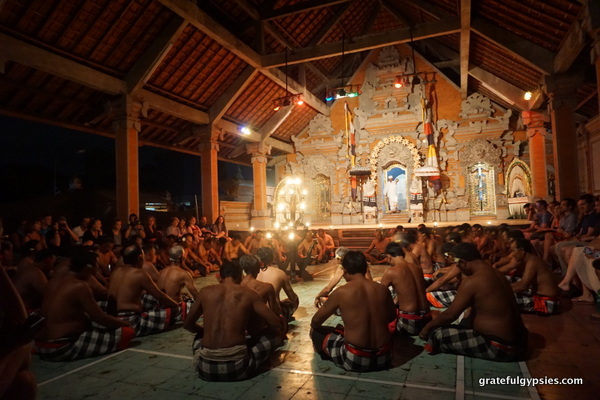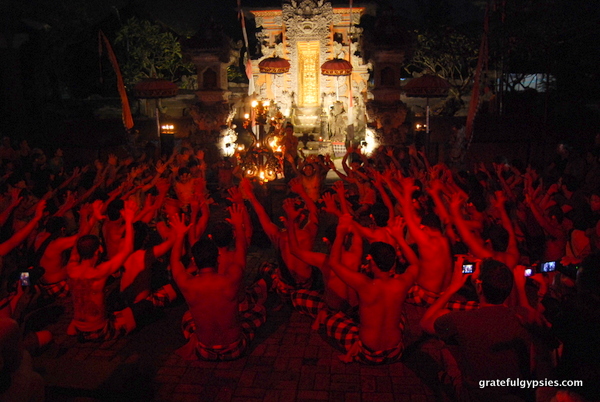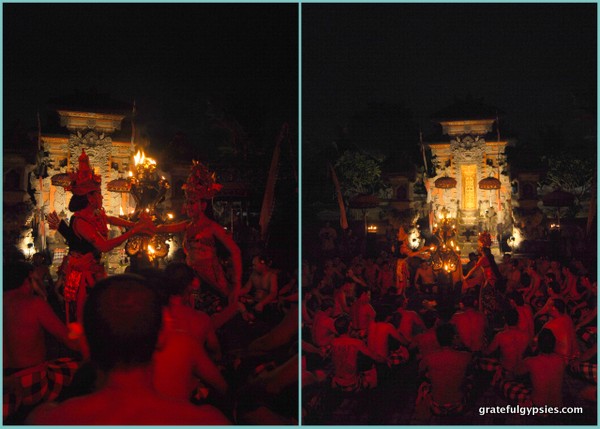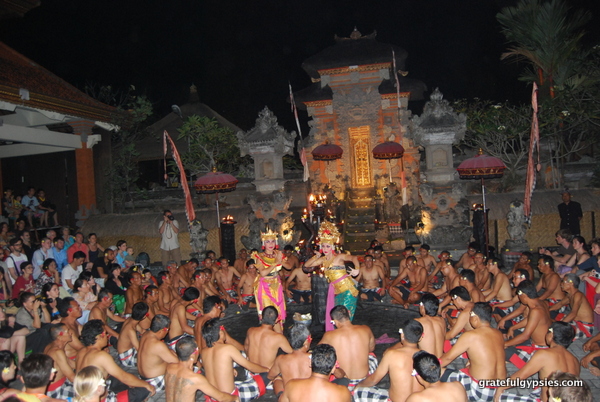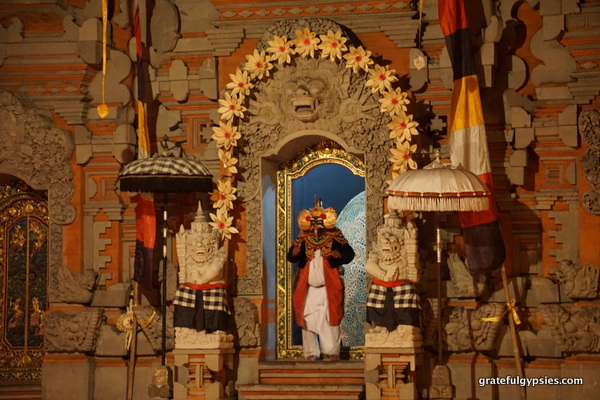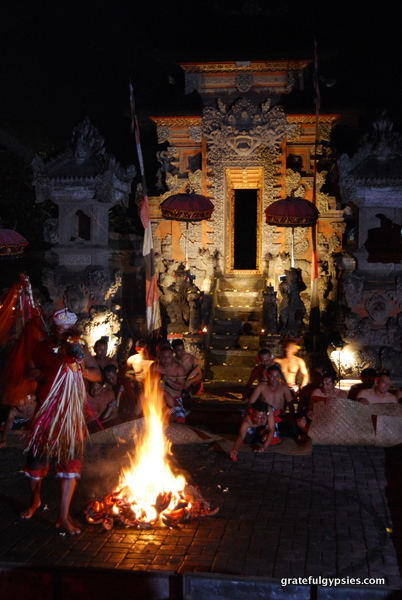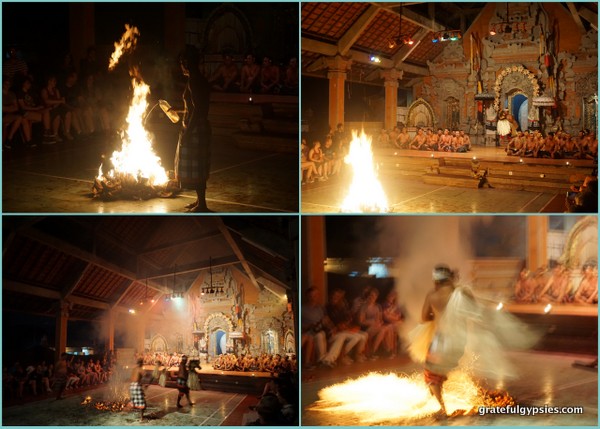Balinese Culture – Kecak and Fire Dance Posted by sasha on Sep 24, 2015 in Uncategorized
Perhaps the most unique of all the Balinese dances, kecak is a one-of-a-kind performance. Rather than being accompanied by a gamelan orchestra – as most Balinese forms of dance are – kecak features a chorus of upwards of 100 men repeatedly chanting “cak” while waving their arms and hands. It is believed that this derives from an old ritual called “sanghyang,” a trance dance whose purpose was to communicate with gods or ancestors. Traditionally, this dance and the accompanied chanting was meant to maintain the health and well-being of a village. In a way, that’s still the primary purpose of kecak, although these days villages benefit not from their ancestors but from tourists.
The development of kecak as a tourist attraction began in the 1930s with a German musician named Walter Spies. Fascinated with the ritual, he came up with the idea to morph the performance into a drama based on the ancient Hindu epic Ramayana. In the years that followed, kecak groups began to tour internationally and nightly shows in Bali sprouted up to satisfy the demand of curious tourists. The most popular places to take in a kecak show are at Uluwatu temple in the far south of the island, as well as the cultural town of Ubud.
In the Ramayana story, Prince Rama tries to rescue Princess Sita, as she has been abducted by the evil King of Lanka. There are quite a few twists and turns to the story, a handful of battles, and even a white monkey who tries to help save the damsel in distress. Before seeing a kecak show, it’s a good idea to read up on the story of Ramayana so you know what’s going on.
For many, the highlight of the performance comes at the very end. A large fire is started, and from the back of the stage emerges a barefoot man on a horse. Ok it’s not a real horse, but use your imagination people. With the fire dying down a bit and the coals burning bright, the man begins to kick them. Sparks fly and audience members nearly leap out of their seats in the front row for fear of being burned. This goes on for a few minutes until the horseman collapses, at which point he is blessed by the priest. Thus ends the show, as the tourists retreat back to their hotels and the performers back to their villages.
If you’re interested in seeing a kecak/fire show on your trip to Bali, you can choose to visit either Uluwatu or Ubud. For the Uluwatu show, it’s best to arrive at the temple no later than 4PM so you have adequate time to explore the grounds and get a seat for the show. It starts around 6PM and tickets cost 100,000 Rupiah, plus 20,000 for the temple. There are countless options for joining tour groups if you’d rather not do it yourself. As for Ubud, kecak shows go on every night in different venues across the town. Refer to this schedule to see where it’s being held the night you want to go. Shows usually start at 7 and tickets are priced at 75,000 Rupiah.

Build vocabulary, practice pronunciation, and more with Transparent Language Online. Available anytime, anywhere, on any device.
About the Author: sasha
Sasha is an English teacher, writer, photographer, and videographer from the great state of Michigan. Upon graduating from Michigan State University, he moved to China and spent 5+ years living, working, studying, and traveling there. He also studied Indonesian Language & Culture in Bali for a year. He and his wife run the travel blog Grateful Gypsies, and they're currently trying the digital nomad lifestyle across Latin America.



